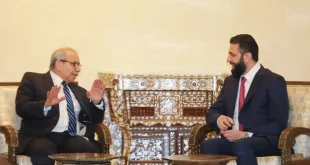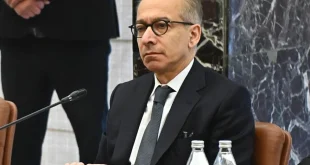حلول أزمة المودعين في لبنان: بين المطالبة بإنشاء وزارة مختصة أو بيع الذهب
تتصدّر أزمة المودعين المشهد في لبنان، حيث يواجه نحو مليوني مودع ضياعًا في ظل الأزمة المالية الحالية، التي جعلت المصارف عاجزة عن إعادة ودائعهم. هذه الأزمة أثرت بشكل كبير على الاقتصاد اللبناني وأدت إلى تراجع الثقة في القطاع المصرفي.
الخيارات المطروحة لمواجهة أزمة المودعين:
في ضوء الأزمة المستمرة، ظهرت مطالبات تتعلق بإيجاد حلول جذرية، حيث تبنّت بعض الجهات فكرة إنشاء وزارة مختصة بشؤون المودعين، على أن تكون مهمتها الإشراف على ملف المودعين وإعادة حقوقهم عبر خطة زمنية مدروسة. وفي المقابل، ظهرت مطالبات أخرى تدعو إلى بيع احتياطي الذهب لتعويض المودعين. لكن هذه الطروحات لاقت رفضًا قاطعًا من قبل شريحة واسعة من اللبنانيين، الذين اعتبروا أن الحلول يجب أن تنطلق من محاسبة القطاع المصرفي وإصلاح النظام المالي، بدلاً من التفريط في أصول الدولة الاستراتيجية مثل الذهب.
رفض بيع احتياطي الذهب: رفض “التحالف اللبناني للحوكمة الرشيدة” فكرة بيع احتياطي الذهب لتعويض المودعين، مؤكدًا أن هذا الطرح يمثل خطرًا على الاستقرار المالي والاقتصادي في لبنان. وأشار إلى أن الذهب هو الضمانة الأخيرة للاستقرار النقدي، وأنه لا يمكن المساس به أو التصرف فيه، خاصة وأن القانون اللبناني يحظر بيع احتياطي الذهب.
رفض فكرة إنشاء وزارة للمودعين: من جانب آخر، أعربت جمعية “صرخة المودعين” عن رفضها القاطع لإنشاء وزارة خاصة بشؤون المودعين، معتبرة أن ذلك سيؤدي إلى تمييع القضية وتفتيت الجهود الرامية لاستعادة الودائع بالكامل. كما أكدت الجمعية أن القضية يجب أن تكون تحت مسؤولية القضاء والمصارف ومصرف لبنان والدولة، بعيدا عن التلاعب السياسي.
دعوة وزير المهجرين لإنشاء الوزارة: وزير المهجرين في حكومة تصريف الأعمال، عصام شرف الدين، كان قد اقترح سابقًا إنشاء وزارة مخصصة للمودعين في الحكومة المقبلة لحماية ودائعهم من مشاريع الشطب، مشددًا على ضرورة تمثيل المودعين في الحكومة بوزير من الأكفاء والنظيف الكفّ. وأوضح شرف الدين أن المودعين يمثلون العمود الفقري للاقتصاد اللبناني، حيث يعتمد أكثر من مليوني مواطن على الودائع في مختلف القطاعات الاقتصادية.
خاتمة: الحلول المطروحة لقضية المودعين في لبنان تتنوع بين مؤيد لإنشاء وزارة مختصة أو بيع الذهب، بينما يؤكد آخرون على ضرورة محاسبة القطاع المصرفي والعمل على إصلاح النظام المالي. في النهاية، تبقى القضية محط جدل واسع، ومن غير المستبعد أن تواصل القوى السياسية في لبنان طرح حلول قد تتغير مع تطورات الأحداث.
Solutions for Depositors’ Crisis in Lebanon: Calls for a Ministry or Selling Gold
The issue of depositors’ funds remains at the forefront of Lebanon's political and economic crisis, as around two million depositors face uncertainty due to banks' inability to return their deposits. This crisis has deeply affected Lebanon's economy and diminished trust in the banking sector.
Proposed Solutions to the Depositors’ Crisis:
In light of the ongoing crisis, various proposals have emerged for resolving the issue, including the establishment of a ministry specifically dedicated to depositors. This ministry would oversee the depositors' funds and ensure their rights are restored through a well-planned timeline. Additionally, another proposal suggests selling Lebanon's gold reserves to compensate the depositors. However, these suggestions have faced strong opposition from many Lebanese citizens, who believe that the solution should begin with holding the banking sector accountable and reforming the financial system, rather than depleting the state's strategic assets like gold.
Rejection of Selling Gold Reserves: The “Lebanese Coalition for Good Governance” rejected the idea of selling Lebanon’s gold reserves to compensate depositors, emphasizing that such a move would pose a serious risk to Lebanon’s financial stability. They stated that gold reserves are Lebanon's last guarantee for monetary stability and should not be tampered with, especially as Lebanese law prohibits the sale of gold reserves.
Opposition to the Creation of a Ministry for Depositors: On the other hand, the “Cry of the Depositors” association expressed strong opposition to the idea of creating a ministry for depositors, arguing that it would dilute the issue and fragment the efforts to recover the full amount of deposits. The association reaffirmed that the responsibility for restoring depositors' funds lies with the judiciary, the banks, Banque du Liban, and the state, free from political manipulation.
Minister of Displaced Calls for the Ministry: Minister of Displaced Affairs in the caretaker government, Issam Charafeddine, had previously suggested the creation of a dedicated ministry for depositors in the upcoming government to protect their funds from potential write-offs. He stressed the need for depositors to be represented by a competent and trustworthy minister. Charafeddine also noted that depositors are the backbone of the Lebanese economy, with more than two million citizens depending on their deposits across various sectors.
Conclusion: The proposed solutions to the depositors’ crisis in Lebanon are diverse, ranging from the establishment of a dedicated ministry to the selling of gold reserves. Others emphasize the need to hold the banking sector accountable and reform Lebanon's financial system. In the end, this issue remains highly debated, and it is likely that political forces in Lebanon will continue to propose evolving solutions as events unfold.
Translated by economycsopes team
المصدر: اللواء
 سكوبات عالمية إقتصادية – EconomyScopes إجعل موقعنا خيارك ومصدرك الأنسب للأخبار الإقتصادية المحلية والعربية والعالمية على أنواعها بالإضافة الى نشر مجموعة لا بأس بها من فرص العمل في لبنان والشرق الأوسط والعالم
سكوبات عالمية إقتصادية – EconomyScopes إجعل موقعنا خيارك ومصدرك الأنسب للأخبار الإقتصادية المحلية والعربية والعالمية على أنواعها بالإضافة الى نشر مجموعة لا بأس بها من فرص العمل في لبنان والشرق الأوسط والعالم




